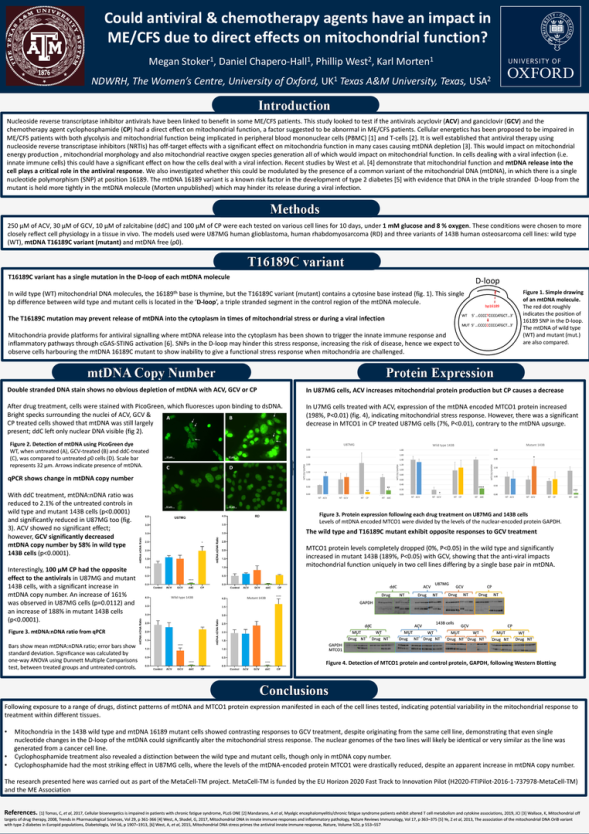Investigating the off-target effects of antiviral and chemotherapeutic agents on mitochondrial function in vitro.
Drug therapy has clear beneficial effects with remission of many disease types; however, severe adverse effects limit the success of a number of drugs due to non-compliance and toxicity. Emerging evidence suggests many side effects are due to drug-induced mitochondrial dysfunction. On the contrary, interruption of mitochondrial functioning may prove to be beneficial in diseases where mitochondria are already compromised. We investigate possible adverse and beneficial effects on mitochondrial function in a variety of cell models to both understand mechanisms of toxicity and explore opportunities of off-target effects for disease treatment.
Under conditions which require mitochondrial function to generate ATP, we test human glioblastoma (U87MG), human rhabdomyosarcoma (RD) and two variants of 143B human osteosarcoma cell lines-wild type (clone 12) and mtDNA 16189 variant (clone 1). Cells undergo therapy from 24 hours to ten days with the antivirals acyclovir (ACV), ganciclovir (GCV), zalcitabine (ddC), and the chemotherapy agent cyclophosphamide (CP). We use a combination of fluorescence microscopy, qPCR, western blots and multiplexed intracellular O2, mitochondrial membrane potential and superoxide production assays to understand drug effects on mitochondrial function and protein expression, with interesting results to date.

